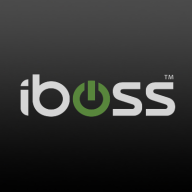


JumpCloud and Bitwarden are competing products in IT management and security. JumpCloud seems to have the upper hand due to its comprehensive device management and integration capabilities.
Features: JumpCloud offers comprehensive device configuration without direct access, automatic user account updates, and centralized user authentication across multiple services. Bitwarden provides password management with emergency access, user-friendly vault health reports, and reliable credential management.
Room for Improvement: JumpCloud could improve monitoring alerts for hardware performance, enhance MDM capabilities, and synchronize better with Microsoft 365. Bitwarden could benefit from allowing credential duplication and enhancing passkey functionality, whilst maintaining its simplicity for users.
Ease of Deployment and Customer Service: JumpCloud excels in cloud deployment with versatile options and responsive customer support, benefiting from user feedback. Bitwarden's dependency on on-premises deployment can limit scalability, although support quality has improved over time.
Pricing and ROI: JumpCloud, though more costly due to its premium features and pricing tiers, offers a good ROI through operational efficiencies. Bitwarden remains cost-effective, particularly for individual and small setup users, offering valuable functionality at a lower cost. Both products provide operational savings but JumpCloud delivers broader enterprise functionalities.

| Company Size | Count |
|---|---|
| Small Business | 6 |
| Midsize Enterprise | 6 |
| Large Enterprise | 5 |
| Company Size | Count |
|---|---|
| Small Business | 5 |
| Large Enterprise | 3 |
| Company Size | Count |
|---|---|
| Small Business | 18 |
| Midsize Enterprise | 2 |
| Large Enterprise | 3 |
Iboss offers a comprehensive cloud-based security platform valued for its scalability and autonomous features, ensuring robust security with easy deployment and management capabilities.
Renowned for its robust security architecture, Iboss integrates seamlessly within diverse networks, delivering efficient granular filtering and advanced content categorization. Its single pane of glass console provides ease of management, allowing rapid scalability suitable for rapidly deploying environments. Operates in BYOD setups due to inline filtering without device installation. Integration with cloud-based applications enhances user control, and features like SASE, SSL inspection, and ChatGPT risk protection stand as highlights. Despite its strengths, users have pointed out areas for enhancement like direct navigation in reports, SSL decryption, and better cloud integration while having room to improve data loss prevention.
What are the most important features of Iboss?The usage of Iboss spans educational institutions, specifically K-12, to enforce internet policies, protect data, and support remote work environments. It provides web filtering and security frameworks to ensure safe browsing. Its platform-as-a-service model offers flexibility for both cloud-based and on-premises requirements, integrating seamlessly to deliver enhanced security features suitable for various deployment needs including zero trust, CASB, and network security for work-from-home setups.
Bitwarden stands out with its open-source platform and cost-effective premium options, offering password suggestions and alerts, secure sharing via the "send" feature, and reliable performance. Its digital legacy management through emergency access is unmatched at its price.
Bitwarden provides an open-source platform suitable for individual and team password management. Users benefit from password suggestions and alerts, secure sharing, and constant performance reliability. Emergency access sets Bitwarden apart by allowing digital legacy management. The mobile app offers quick password autofill and vault health reports, enhancing usability. Challenges include improving security features, better integration of automated functions, and reducing costs relative to competitors. Users value the open-source nature, cross-platform compatibility, and self-hosting capabilities, which ensure portability and permissions management.
What are Bitwarden's Key Features?In industries where data security is crucial, Bitwarden's open-source platform is favored for managing sensitive credentials, allowing secure information sharing among team members. Its compatibility with different platforms and self-hosting options provides the flexibility and control needed to maintain data security without vendor lock-in.
JumpCloud offers efficient device management, single sign-on, and integration capabilities. It integrates seamlessly with Microsoft 365 and Google Workspace, streamlining user management across diverse environments.
JumpCloud delivers device, user, and application management across platforms like Windows, Mac, Linux, and cloud services such as AWS and Azure. Acting as a cloud-based directory, it facilitates single sign-on and identity access management, making it an attractive replacement for Active Directory and LDAP directories. Its policy management and centralized directory simplify user and device administration, offering a user-friendly interface with flexible access control and remote management. Organizations can experience streamlined onboarding and offboarding processes, robust authentication, and scalability. Despite being powerful, room for improvement is noted in alert capabilities, comprehensive MDM for Windows, multi-tenant features, and API reliability.
What are the key features of JumpCloud?Companies across industries utilize JumpCloud for comprehensive management of devices and user identities. It is especially beneficial in technology-driven sectors where centralized directory services replace traditional Active Directory and LDAP models. Organizations employing platforms like AWS and Azure find it essential for maintaining efficient and secure access management.
We monitor all Enterprise Password Managers reviews to prevent fraudulent reviews and keep review quality high. We do not post reviews by company employees or direct competitors. We validate each review for authenticity via cross-reference with LinkedIn, and personal follow-up with the reviewer when necessary.